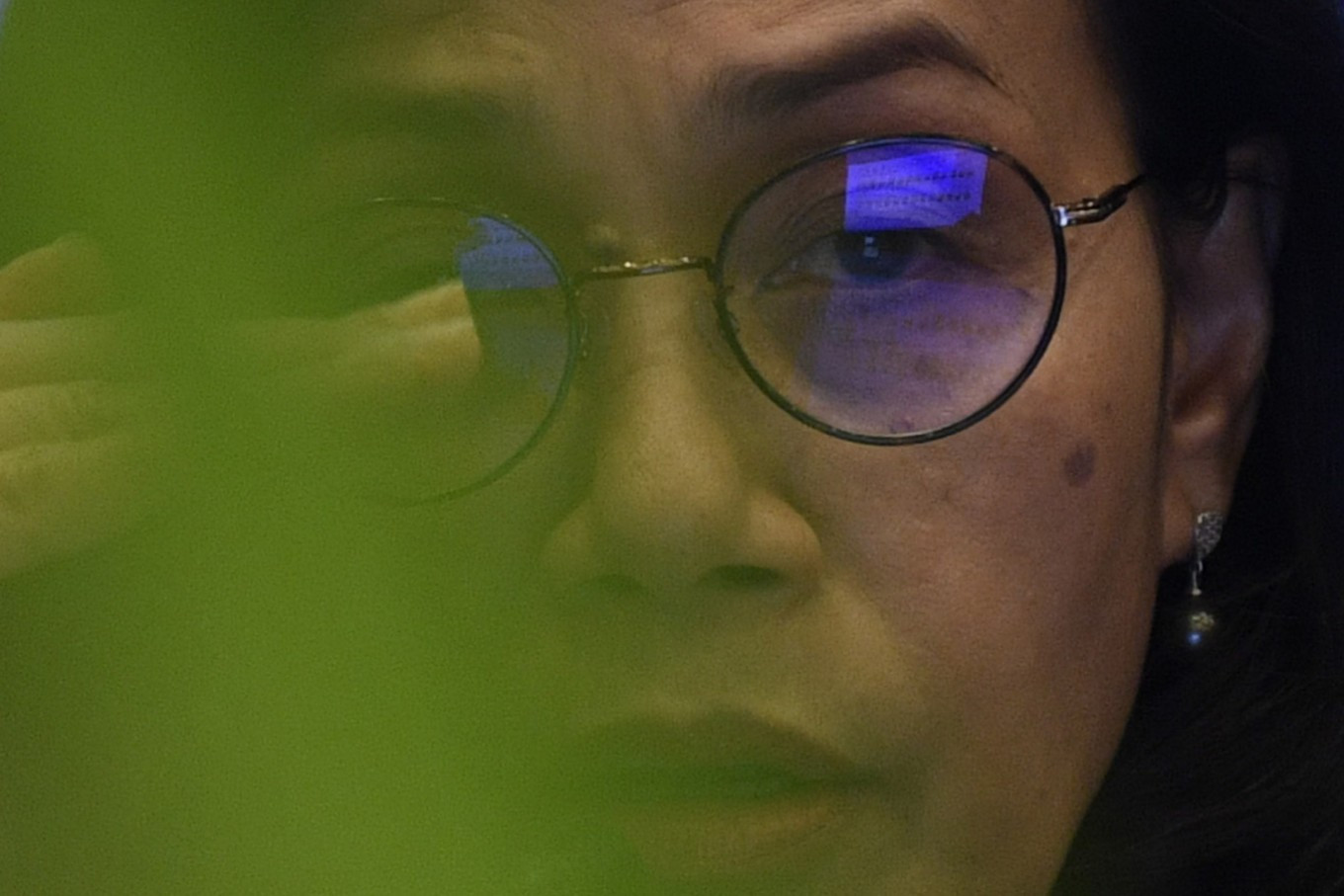Popular Reads
Top Results
Can't find what you're looking for?
View all search resultsPopular Reads
Top Results
Can't find what you're looking for?
View all search resultsAnalysis: Govt struggles to shore up tax revenue amid bearish market
Change text size
Gift Premium Articles
to Anyone
 Finance Minister Sri Mulyani Indrawati talks to the press in Jakarta on Feb. 19. The country’s gross domestic product (GDP) is expected to contract 3.8 percent in the second quarter and may shrink by a further 1 percent or grow 1.2 percent in the third quarter, she said on Thursday. (Antara/Puspa Perwitasari)
Finance Minister Sri Mulyani Indrawati talks to the press in Jakarta on Feb. 19. The country’s gross domestic product (GDP) is expected to contract 3.8 percent in the second quarter and may shrink by a further 1 percent or grow 1.2 percent in the third quarter, she said on Thursday. (Antara/Puspa Perwitasari)
I
n response to the sharp decline in tax revenues in early 2025, Finance Minister Sri Mulyani has assembled a special ministerial task force to bolster state revenue by targeting key taxpayers. However, market concerns persist over Indonesia's fiscal discipline, mounting debt obligations and the central bank’s increasing role in absorbing government bonds.
Along with the Finance Ministry’s general secretariat and inspectorate general, the task force comprises seven ministerial departments, including the Taxation Directorate General, the Customs and Excise Directorate General, the Budget Directorate General, the Fiscal Policy Agency (BKF) and the National Single Window (NSW). The team will focus on more than 2,000 taxpayers by leveraging digital tax mechanisms to minimize revenue leakage.
Beyond taxation, the government also seeks to maximize revenue through increased royalties on 12 key mining and strategic commodities, including coal, tin, bauxite and crude palm oil (CPO).
The special revenue task force was formed on a direct order from President Prabowo Subianto, who recently called a meeting with Sri Mulyani and other top fiscal officials, including Coordinating Economic Minister Airlangga Hartarto, Energy and Mineral Resources Minister Bahlil Lahadalia, Investment and Downstream Minister Rosan Roeslani, Communications and Digital Minister Meutya Hafid and Financial Services Authority (OJK) chairman Mahendra Siregar, instructing them to boost state revenue by intensifying tax collection and improving administrative efficiency.
Prabowo aims to more than double Indonesia’s tax ratio to 23 percent by the end of his term in 2029. This is a tall order, however, as this ratio has remained stagnant at around 10 percent since 2022 and recorded just 10.08 percent in 2024, slightly below 10.31 percent in 2023.
In the first two months of this year, total state revenue declined 25 percent year-on-year to Rp 240.4 trillion (US$15 billion) from Rp 320.51 trillion over the same period in 2024. Of this amount, Rp 187.8 trillion came from taxes, Rp 52.6 trillion from customs and excise and Rp 76.4 trillion from royalties and other nontax revenue. Tax revenues were hit hardest, plunging 30 percent to Rp 187.8 trillion from Rp 269.02 trillion last year.
The government has targeted a maximum budget deficit of 2.35 percent of gross domestic product (GDP) for 2025. In the January-February period alone, budget realization resulted in a deficit of 0.13 percent of GDP, or Rp 31.3 trillion.


















